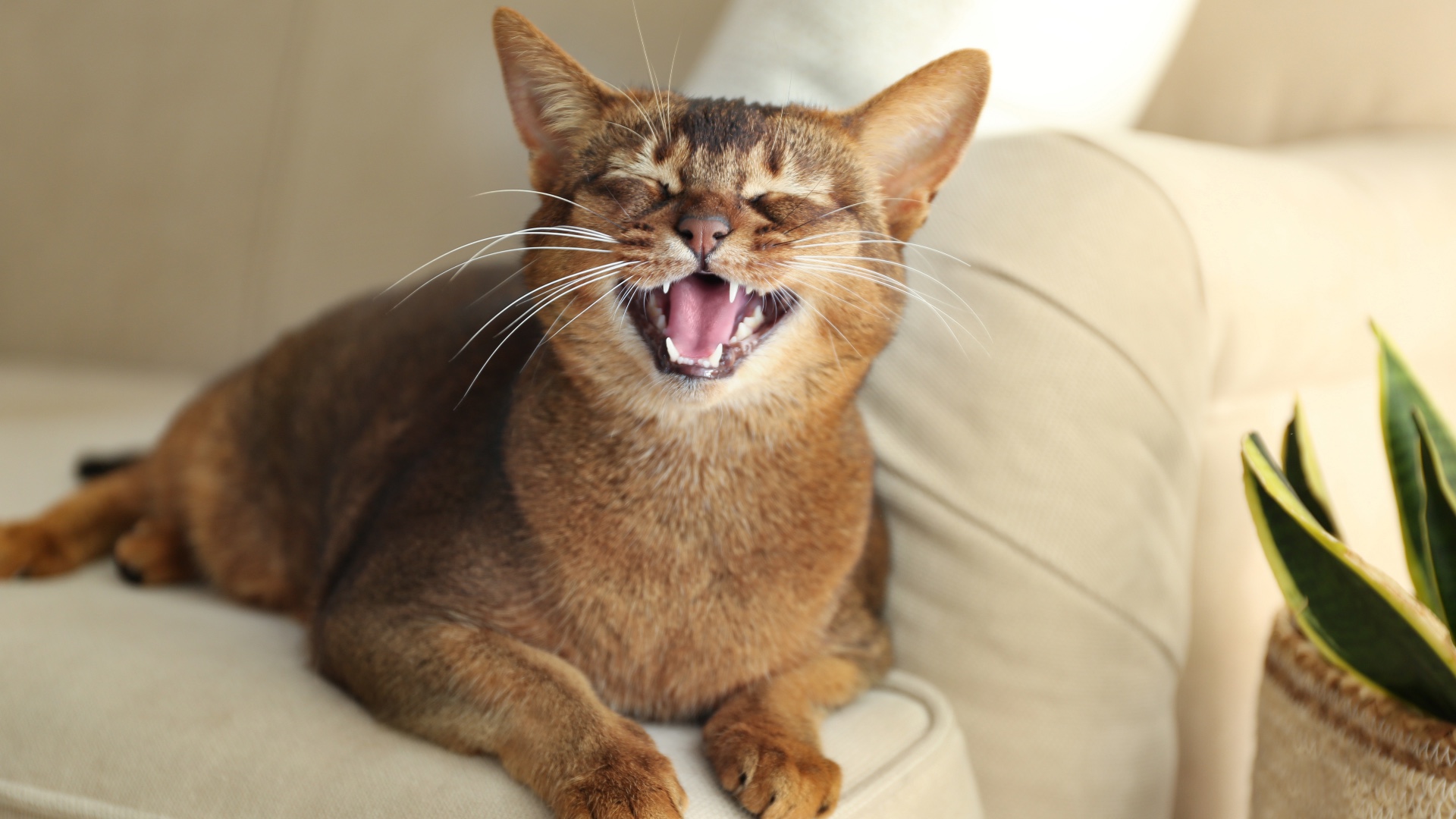
While we often think of separation anxiety as something that only affects our canine companions, cats can also struggle with being apart from their owners.
Although separation anxiety in cats is rarer than in dogs, it can happen. In fact, since the pandemic, more and more pet parents are reporting that their feline friends are struggling with not having them at home all the time.
Many cats become very attached to their owners and with a lot of us back in the office, at least part-time, our cats may find the change in routine hard to handle.
If you're wondering whether your kitty may be struggling with separation anxiety, Rosie Ellis, a certified trainer and founder of Rosie's Southside Animal Shelter in Indianapolis, has put together a handy TikTok video talking you through the signs to be on the lookout for and five things you can do to help your kitty feel calmer.
You can view the video in full below, or read on for a summary...
@catztrainer99 ♬ Dandelions (slowed + reverb)
The term ‘separation anxiety’ in cats is used to describe stress or anxiety when left alone. This means the symptoms are much the same as anxiety in cats caused by other things. One clue that your cat may have separation anxiety is if the symptoms only occur, or are worse, when your cat is left alone, or you leave the house.
With that in mind, Ellis says the following symptoms may be caused by separation anxiety:
- Excessive vocalization
- Elimination outside the litter box
- Vomiting
- Changes in eating/drinking
- Restlessness
- Clinginess
- Destructive behaviors
- Excessive grooming
If you've spoken with your vet and suspect separation anxiety might be the cause of your cat's change in behavior, Ellis says the following five tips can be useful in helping your kitty feel more settled.
1. Scheduled play sessions: "Play reduces stress and anxiety and builds confidence, so be sure to schedule play sessions when you're home." Check out our guide on how to play with a cat to ensure you feline friend is getting the maximum benefits out of your time together.
2. Avoid saying goodbye: "This will be a hard one for some of you," says Ellis, "But if we don't make a big deal of leaving, it will lessen the cat's anxiety."
3. Provide enrichment and mental stimulation: "This allows your cat to be focused on objects and toys rather than your absence." The best automated cat toys and interactive cat toys are both great options when it comes to providing this.
4. Recruit a familiar visitor: "If your cat enjoys the company of a neighbor or friend, have someone visit your cat during the day," suggests Ellis.
5. Practice going in and out of the house: "On the days you're home, practice going in and out of your home, increasing the time you're outside. Do this a few times before you actually go somewhere and then leave." Doing this helps your cat get used to the feeling of being apart from you in a gradual way.
If you try Ellis's tips for several weeks and don't notice any positive improvements in your cat's behavior, we recommend speaking with your vet who may prescribe your kitty with medication, or refer you to a veterinary behaviorist.

.jpg?w=600)





